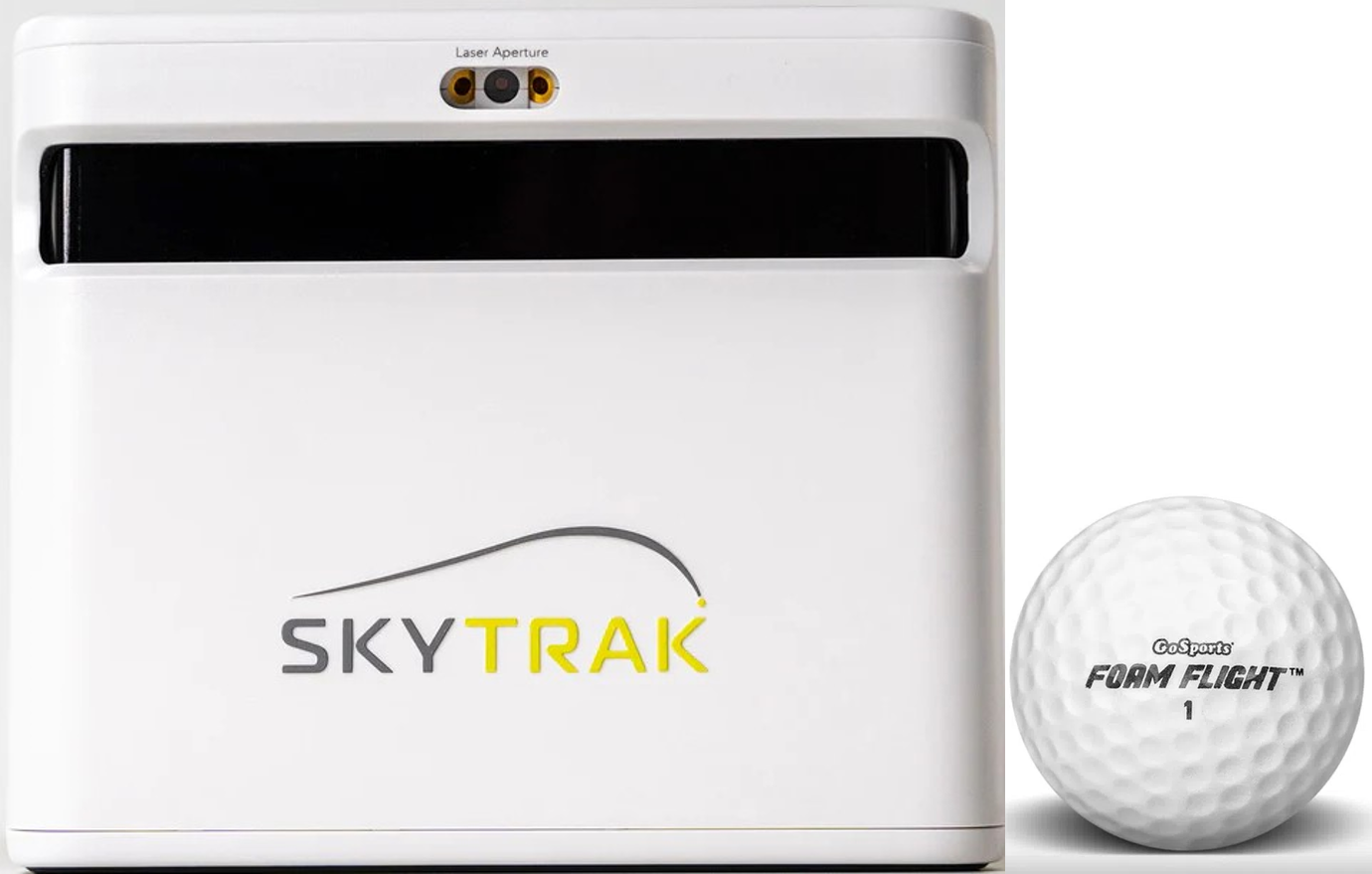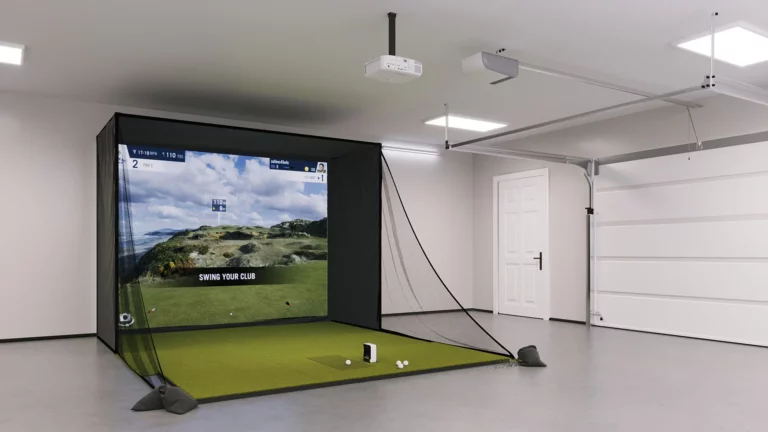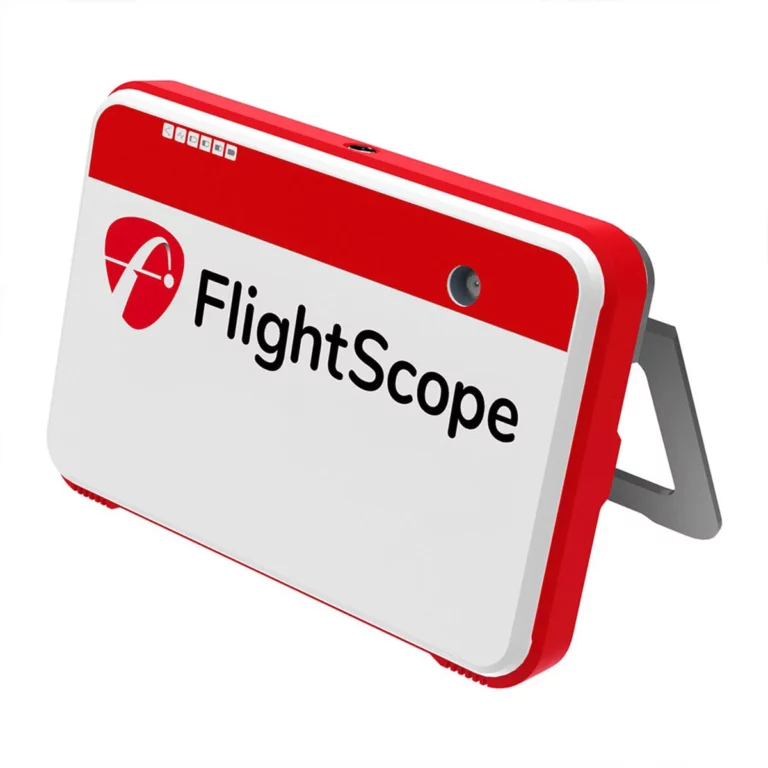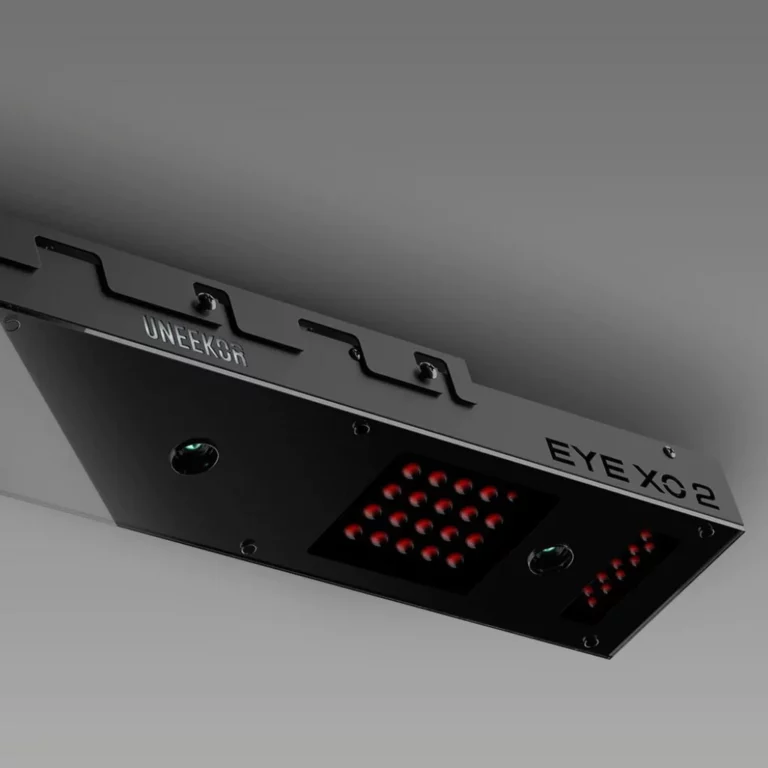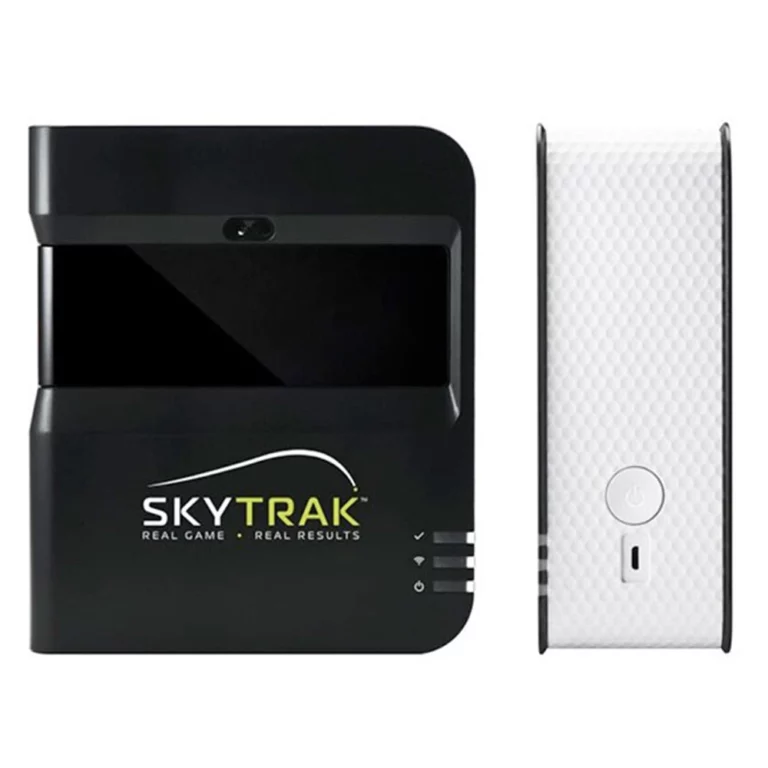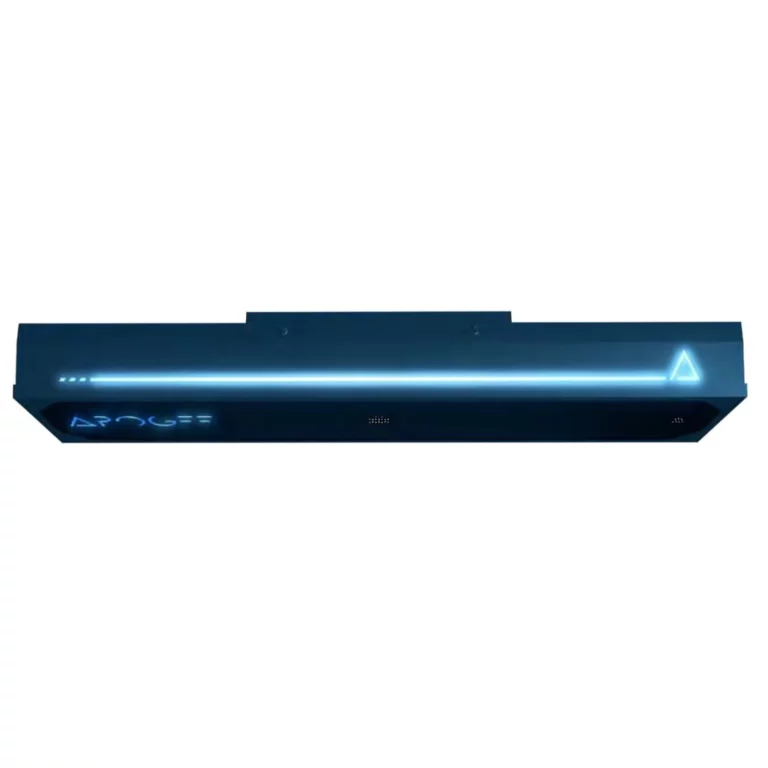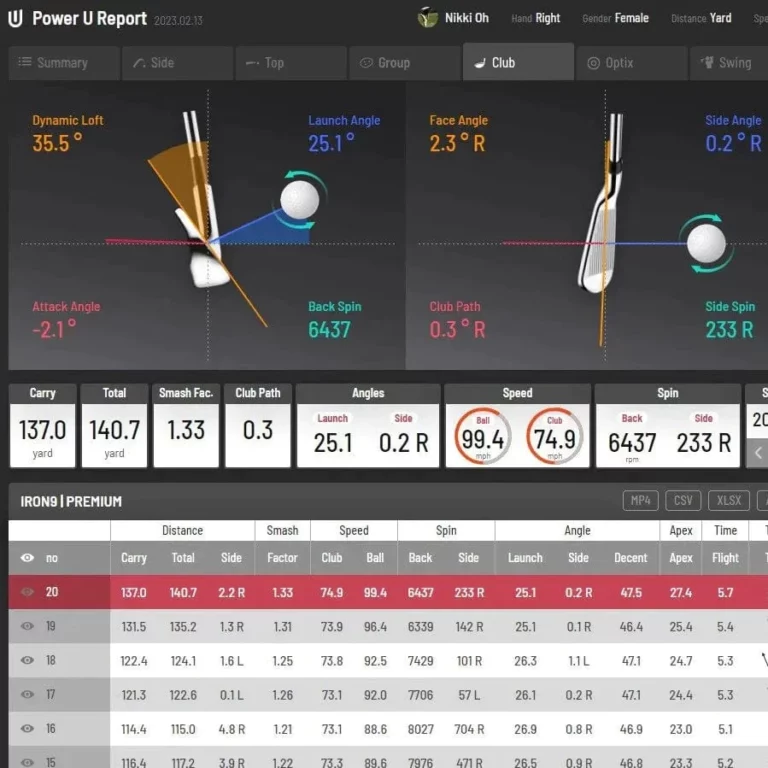For golfers wanting to practice their swing cheaply and conveniently indoors, foam golf balls seem like an ideal solution.
But will foam balls provide meaningful feedback and data when used with modern launch monitors and golf simulator systems? The short answer is that no, foam balls will not work properly with launch monitors.
In this article, we’ll dive into why foam balls are not compatible with today’s launch monitor technology. We’ll also look at the potential benefits and limitations of using foam practice balls so you can determine if they align with your golf goals.
Let’s explore why you’re better off sticking to real dimpled golf balls with launch monitors and simulators for meaningful results.
How Do Launch Monitors Actually Track Shots?
Before assessing foam ball performance, it helps to understand what launch monitors are actually measuring on each swing.
Advanced launch monitors, whether radar or camera-based, are precisely calibrated to measure critical ball flight and club data points by tracking a real golf ball immediately after impact.
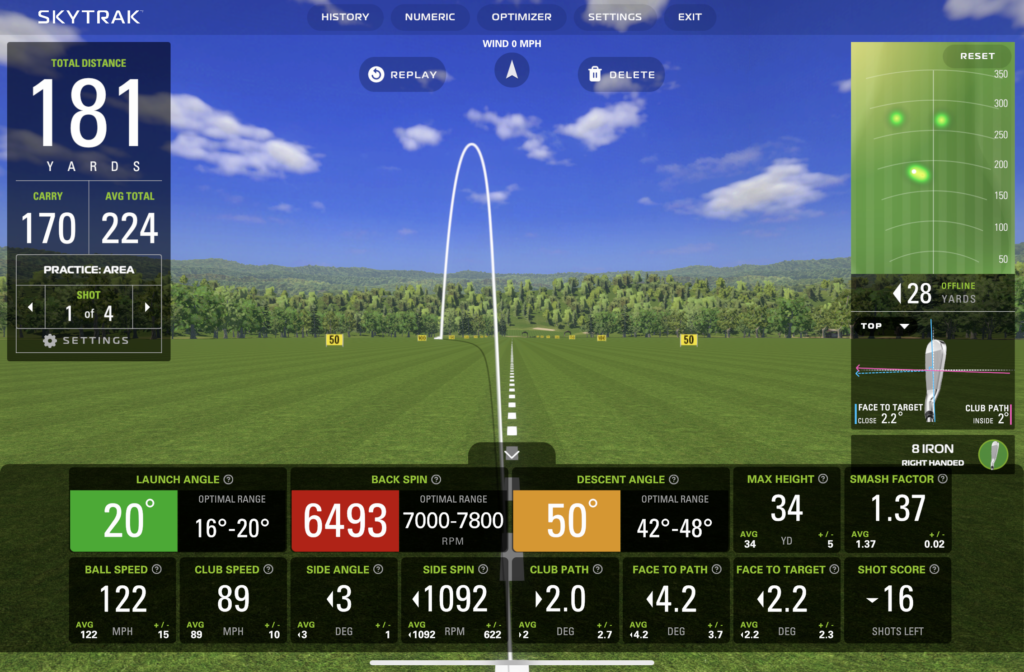
Key metrics gathered include:
- Ball speed
- Launch angle
- Backspin
- Side spin
- Carry distance
- Clubhead speed
- Clubface angle
Launch monitors expect the consistent, predictable physics of a struck golf ball to generate accurate shot data. So how do light, deformable foam balls affect results?
So Do Launch Monitors Work with FOAM BALLS?
While foam practice balls seem appealing for cost and indoor convenience factors, they introduce several challenges for modern launch monitors.
Challenges Using Foam Golf Balls with Launch Monitors
- Foam compresses significantly at impact rather than transferring energy to the ball like a solid golf ball cover. This makes accurately tracking ball speed and launch angles difficult.
- Light foam provides nearly no ballistic inertia for launch monitors to track after impact compared to 40+ gram golf balls.
- Foam absorbs impact energy rather than driving ball speed like rigid golf ball materials. Lower ball speeds reduce launch monitor accuracy.
- The aerodynamics of foam balls in flight differs considerably from dimpled golf balls, reducing carry distance relevance.
- Soft, fluffy foam exteriors misrepresent the clubface interaction compared to hard golf ball covers, altering impact efficiency analytics.
While foam balls may be useful for casual entertainment, these factors mean most serious launch monitors will struggle producing meaningful swing and shot data with foam golf balls.
Launch Monitor Data Using Foam Balls
When comparing the performance of do launch monitors work with foam balls versus real golf balls looking at launch monitors like SkyTrak+, shows the data discrepancies very clearly:
- Ball Speed: Foam ball speeds measure 20+ mph slower than real golf balls.
- Smash Factor: Foam ball smash factors are extremely low due to inefficient energy transfer.
- Launch Angle: Foam ball launch angles are invalid due to excessive lofting on all shots.
- Spin Rates: Measured foam ball spin rates only vaguely correlate to ball behavior.
- Carry Distance: Foam ball carry estimates are unrealistic due to abnormal trajectories.
While the shot tracer may look reasonable, the underlying data metrics using foam balls are unreliable for meaningful swing analysis.
So do launch monitors work with foam balls? The answer is a definite no!
When Foam Golf Balls Can be Useful
While foam balls create data challenges with launch monitors, there are a few scenarios where foam balls could provide some benefit:
- Practicing full swings gently in very confined indoor spaces
- Training partial and 3/4 swings mechanics with foam for safety
- Allowing young junior golfers to take full swings safely indoors
- Entertaining novice and beginner golfers with simulators for fun
For serious practice and swing analysis, real dimpled practice golf balls will provide the most accurate and actionable launch monitor data. But foam balls have a place for casual and limited indoor use.
Tips for Using Foam Balls with Launch Monitors
If you do opt to utilize foam golf balls for entertainment and very slow indoor swings, keep these tips in mind:
- Use higher density, limited compression foam balls to minimize data issues
- Adjust simulator settings to maximize foam ball carry
- Focus only on club metrics like speed and face angle rather than ball data (even these will be wrong though)
- Emphasize swing rhythm and mechanics rather than shot results
- Supplement with real ball practice outdoors or indoors regularly
While foam balls can make indoor simulator time more accessible and enjoyable for beginners, take launch monitor data with a grain of salt and continue practicing with real golf balls to develop legitimate skills.
Keep It Real for Optimal Feedback
When used appropriately, foam golf balls can provide a fun, safe way to develop elementary swing techniques indoors or entertain novice golfers. But legitimate improvements require real dimpled golf balls.
For golfers looking to genuinely analyze their swing using meaningful launch monitor data, stick with quality practice golf balls to get realistic feedback. Don’t expect foam balls to replicate real performance.
Understanding the limitations of foam balls with launch monitors allows you to utilize them for entertainment when appropriate, while relying on real balls to ingrain lasting changes.
Will Range Balls work with Launch Monitors?
Yes, range balls will work with any launch monitor.
However, you should not waste your time using them (unless you play with range balls on the course, and in that case we have a different problem and you need to see this post).
Our advice: do not EVER use range balls with your launch monitor!
Golf launch monitors will work properly with any real golf ball. There are multiple problems you will encounter with range balls though:
Limited Flight
Most driving ranges use limited-flight golf balls. This means you will never know how far you truly carry your clubs. All of the yardages will be 10-15% less than actuals.
Incorrect Spin Rates
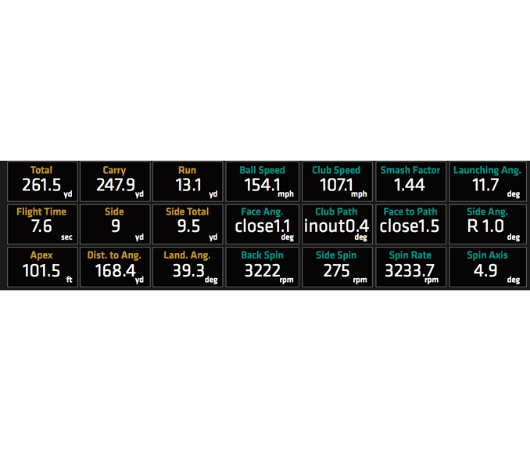
Range balls are made for durability and thus do not spin like a premium golf ball. You will see much lower spin rates and more rollout with your shots. This is not helpful once you get to the course to play.
Damage to Impact Screen
You always need to be using new, good-quality golf balls with your launch monitor and impact screen. Dirty, scuffed-up balls can mark or cut the impact screen up.
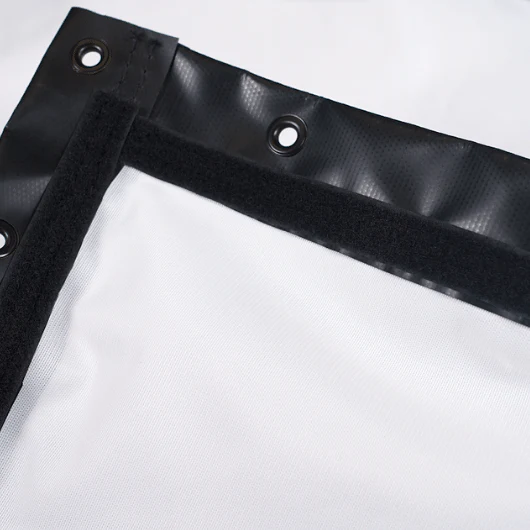
If you are trying to save money see our post on the best golf balls. We have some options in there that are premium golf balls but at a lower price.
Can You Use Golf Launch Monitors Without a Golf Ball
No, you cannot effectively use most launch monitors without a golf ball. Launch monitors require tracking an actual golf ball hit off the clubface in order to generate meaningful swing data and analysis.
Key reasons launch monitors need a ball
The sensors in launch monitors like radar and high-speed cameras are calibrated specifically to pick up on a golf ball’s reflectivity and ballistics immediately after impact. Without a ball, critical data points like ball speed, launch angle, and spin rate cannot be measured.
Launch monitors estimate full ball flight characteristics based on real tracked metrics from a struck golf ball. Without ball data, only partial club metrics can be gathered without shot context.
Factors such as where on the clubface contact occurs directly impact ball launch conditions. Without a ball, face impact points cannot be gauged as accurately.
Launch monitors validate and tune their shot analysis algorithms over millions of actual golf ball impacts. Removing the golf ball reduces result accuracy.
Some club data like attack angle and dynamic loft require understanding interaction with the ball to be truly meaningful. No ball makes pure club data less useful.
While a few monitors try estimating ball flight using club data only, results will be highly approximated at best without an actual golf ball being struck. For quality feedback, a real golf ball is required for launch monitors to function effectively for the overwhelming majority of systems.
Best Golf Balls For Launch Monitors
The best golf ball for use with a launch monitor is the exact same model that you play with on the course. You are trying to replicate your playing conditions, so you want the launch monitor to give you metrics that will transfer to the course.
Make sure you use brand new golf balls if you have an impact screen. Dirty or worn golf balls with damage the screen.
Not sure which ball to get? Read our article on the Best Golf Ball for a 10 Handicapper. These golf balls will work for any level handicap.
Measuring Swing Speed Without a Golf Ball
If you want to measure your swing speed without a golf ball, you can get a device such as the swing speed radar. It can measure your club head speed without having to hit a ball.
Calculates clubhead or bat speed within a range of 20 to 200 miles per hour without being attached to your golf club using Doppler Radar.
Conclusion
Due to all of the reasons stated above, you should only use new, clean, and premium golf balls with your launch monitor. Use the exact same model of ball that you play with on the course and you will get great results!
Frequently Asked Questions
Can launch monitors work with foam balls?
Are foam balls a great option for use with launch monitors?
How do foam balls compare to traditional golf balls?
Do foam balls with a launch monitor provide accurate results?
Can I use plastic golf balls with a launch monitor?
Can I test my golf simulator using foam balls with a launch monitor?
Can you use foam balls with Rapsodo?
Can you use foam balls with SkyTrak?
Can you use foam balls with Trackman?
Founder of TheLuxeGolf, I am an avid golfer with a single-digit handicap with over 20 years of experience playing golf. I use my analytics education from Georgia Tech to help me research and write the best articles on luxury & premium golf products! I love how analytics has seeped into every aspect of golf and how it can be used to provide incredible insights into your game. In my time, I’m either writing about golf, watching golf, or playing golf!

